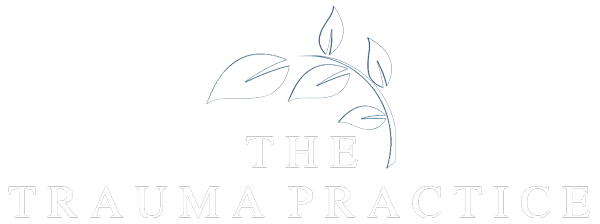
Anxiety disorders include disorders that share features of excessive fear and anxiety and related behavioural disturbances. Fear is the emotional response to real or perceived imminent threat, whereas anxiety is anticipation of future threat. Obviously these two states overlap, but they are also differ, with fear more often associated with surges of autonomic arousal necessary for fight or flight, thoughts of immediate danger, and escape behaviours, and anxiety more often associated with muscle tension and vigilance in preparation for future danger and cautious or avoidant behaviours.
Anxiety Disorder types
Separation Anxiety Disorder
Separation anxiety disorder describes an anxiety disorder where a person experiences excessive anxiety when separated from their home, or people who they have a strong emotional attachment to. E.g. parent, sibling or primary caregiver.
Selective Mutism
Selective mutism is an anxiety disorder where a person who is capable of speech is unable to speak in specific situations or to specific people. Often co-exists with social anxiety disorder.
Specific phobia
A specific phobia is a marked fear or anxiety about a specific object or situation. Examples might include flying, heights, animals, receiving an injection or seeing blood.
Social Anxiety Disorder (Social Phobia)
Social anxiety is an anxiety disorder marked by fear or anxiety about one or more social situations in which the individual is exposed to possible scrutiny by others. Examples might include social interactions, meeting unfamiliar people, being observed and performing in front of others.

Panic Disorder
Panic disorder is characterised by unexpected panic attacks. A panic attack is an abrupt surge of intense fear or intense discomfort that reaches a peak within minutes, and during which time symptoms including, palpitations, sweating, shortness of breath, fear or losing control or fear of dying might occur.
Agoraphobia
Agoraphobia is having a marked fear or anxiety of two or more of the following five situations. Using public transport, being in open spaces, being in enclosed places, standing in line or being in a crowd or being outside of the home alone.
Generalised Anxiety Disorder
Generalised Anxiety Disorder is characterised by excessive worry and anxiety occurring more days than not, for at least six months, about a number of events or activities. These might include work or school performance.
Substance/Medication-Induced Anxiety Disorder
This anxiety disorder describes severe anxiety or panic caused by alcohol, drugs or medications.
Anxiety Disorder Due to Another Medical Condition
This anxiety disorder is related to an underlying medical condition which can cause intense anxiety and panic.
Contact Us To Book Anxiety Therapy
07944 996 646
contact@traumapractice.co.uk
Anxiety Causes
Anxiety is caused by a number of issues. These might include medical causes, current life situation, physical or mental health problems, childhood or past experience or trauma.
Medical Causes
There are a number of medical difficulties which can cause anxiety. These might include: drug misuse and withdrawal, withdrawal from anti-anxiety medication, respiratory disorders including asthma, chronic pain, IBS, some rare tumours, thyroid problems, diabetes or heart disease.
Mental Health Problems
Experiencing a mental health difficulty can be anxiety provoking. Anxiety is often experienced with depression.
Family Script
If we have a close family member who experiences anxiety difficulties, we are more likely to develop anxiety difficulties. It is not yet clear whether this is because of genetics or whether we have learnt particular ways of thinking and behaving.

Trauma
Neglect, physical, emotional or sexual abuse, losing a parent or being socially excluded or bullied can trigger anxiety difficulties. These types of experience can alter brain chemistry magnifying our response to triggers which may not have caused us difficulty in the past.
Current life situation
Throughout the course of our lives we might experience a number of different difficulties. These might include work stress, exhaustion, money difficulties, bereavement, feeling lonely or housing difficulties. All of these can trigger anxiety.

Anxiety Symptoms
Anxiety symptoms might manifest as physical or psychological symptoms or both.
Psychological Symptoms
Psychological symptoms of Anxiety Disorder can affect the way you use your mind. Examples might include:
• Feeling a sense of dread
• Fearing the worst-case scenario is going to happen
• Irritability
• Restlessness
• Feeling constantly on edge, nervous and tense
• Inability to relax
• Having difficulty concentrating
• Worrying that you may have upset someone
• Feeling like other people can see that you are anxious and are looking at you
• Worrying all of the time and stopping worrying could make something bad happen
• Worrying about when your next panic attack might be
• Needing reassurance from other people to let you know things are ok
• Ruminating and excessive post event processing
• Feeling a sense of disconnection from your mind or body
• Feeling disconnected from the world
• Worrying about bad things happening in the future

Physical symptoms of Anxiety
- Shallow breathing
- Quick breathing
- Trembling or shaking
- Feeling overly tired
- Dizziness
- Heart palpitations
- Muscles tension
- Unexplainable aches in the body
- Dry mouth
- Excessive sweating
- Digestion problems and stomach aches
- Feeling nauseous
- Headaches
- Pins and needles
- Difficulty sleeping or waking up feeling unrested
- Restlessness
- Feeling nervous
- Feeling panicky
- Having difficulty concentrating
- Using avoidance of situations which trigger your anxiety
Take a look at our Anxiety Therapy Page.
Anxiety Therapy available in London & Hertfordshire.
Contact Us To Book Anxiety Therapy
07944 996 646
contact@traumapractice.co.uk
